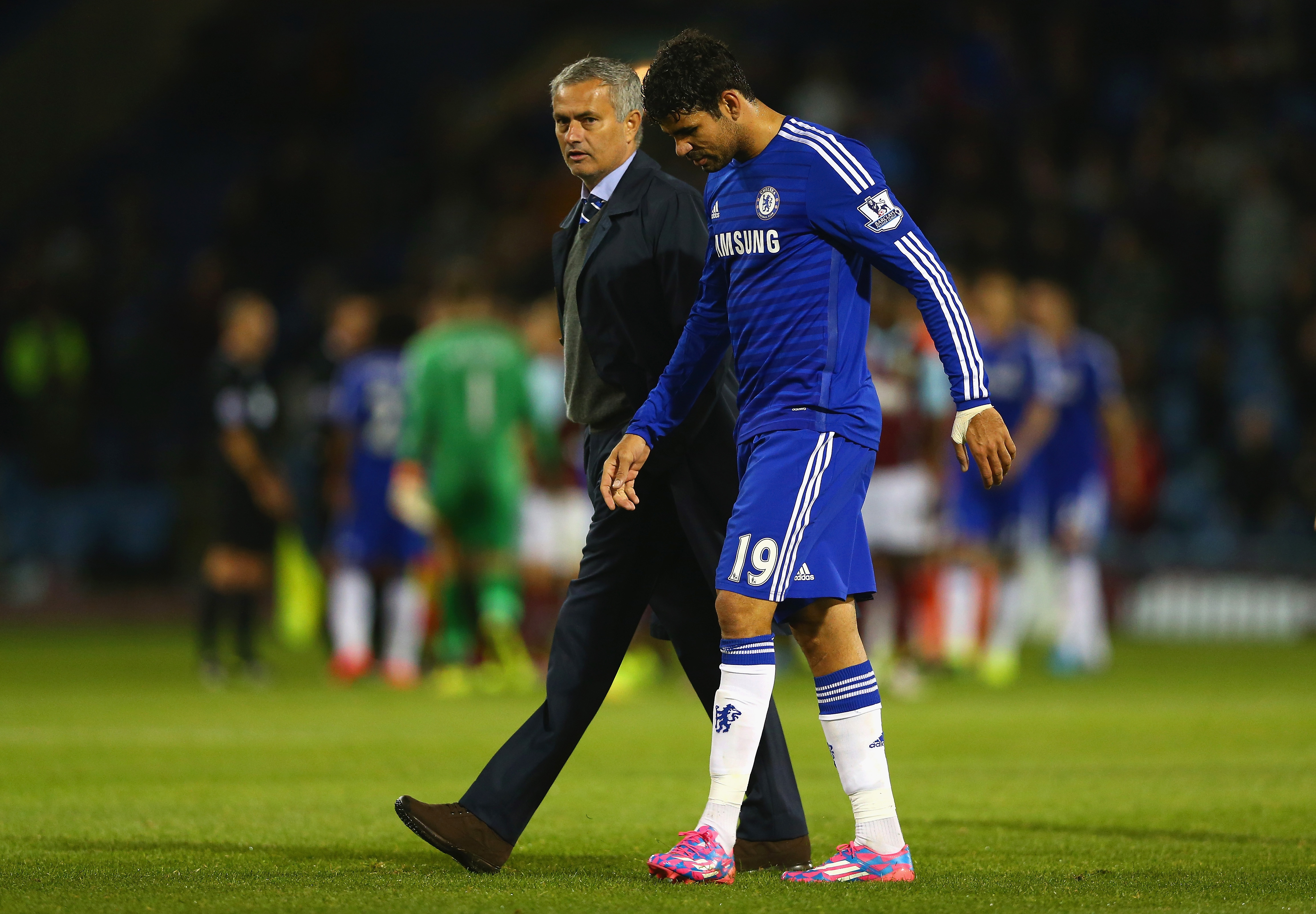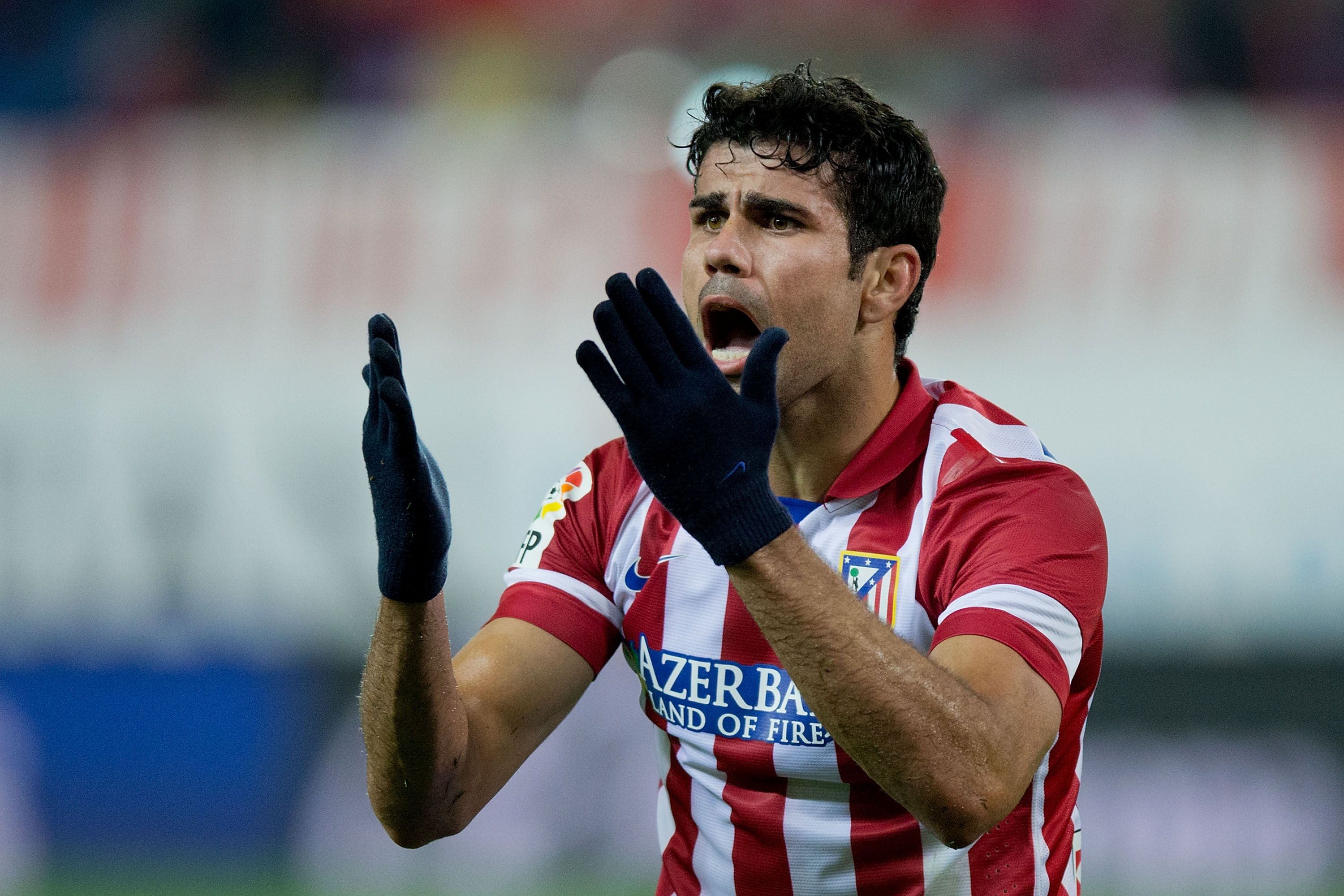

Share
15th January 2017
10:47am GMT

“He is still the guy that came from a very small village behind the sunset,” Mourinho said, before he went on to praise his new striker’s humility and devotion to his team-mates.

Diego Costa battled to emerge from behind the sunset and, if he is tempted by the £30 million a year that is said to be on offer in China, it probably helps to understand where he’s coming from.
Chelsea’s performance on Saturday evening at Leicester suggested that the club can get by without him, but they can also have no complaints if Diego Costa decides that his first loyalty is to Diego Costa.
For some, it will be evidence of the opposite, another sign that the game has gone, that disloyalty is destroying all we hold precious, even if loyalty is a meaningless term in football, a word used when someone somewhere is unhappy with someone else doing something they don’t want them to do.
Football has rarely had much time for loyalty in the truest sense, going back to the days when great footballers like Tom Finney were denied opportunities they wanted to pursue.
Finney had a chance to play for Palermo, but he was told that it wasn't an option for one of the most gifted footballers of his generation.
“What does thou want to go to Italy for, Tom? You can forget about that. If thou doesn’t play for us, thou don’t play for anyone,” Preston's chairman told Finney at the time.
When Finney died, he was said to represent a “saner age”, a contrast, according to one newspaper with “the mega-mouth, mega-money, mega-ego world of British football.”
Football certainly knew how to keep people in their place in that saner age. But football is something different now and it is the players, those who attract people to the game, who are made rich.
Diego Costa wouldn’t be the player he is if he had known his place, even if so much of what he is was formed growing up behind the sunset as he fought to make it as a footballer.
At the age of 14, he moved with his family from Lagarto in northern Brazil to Sao Paulo. Lagarto was a place where there were no pitches with grass where he could play. “The street was my school,” he said.
When he met an opponent, he thought he had one duty: to overcome them any way he could. “I thought I had to kill them,” he has said.
“Boys who grew up playing in academies are taught to control themselves and respect others, but no-one ever told me otherwise, I didn't have a school to teach me this. I was used to seeing players elbowing each other in the face and thought it was the norm.”
His formative years have shaped him, like they shape everyone, and the clubs he has played for have benefitted from that grounding.

Costa is not a product of an academy, which is why he is so valuable. There are many reasons for Chelsea’s resurgence this season, but the return of the Costa who used the qualities he learned as a young player for the benefit of the team has been among them.
Since he arrived in Europe twelve years ago, Costa has had to use those qualities to get to wherever he wanted to go. He travelled to Europe when he was 16, determined to stay and to fight. When he joined Atletico Madrid, he found himself loaned out, the character actor behind leading men like Sergio Aguero and Radamel Falcao.
“He was in Portugal with a team and I never looked at him,” Mourinho said in 2014 of Costa’s initial years in Europe at Braga.
“Everyone was blind including myself. He went to Atlético and Aguero was the superstar, and he went on loan. After that, Aguero was gone, they bought Falcao, Falcao was the superstar. He was on loan. I think he was always behind very important players, but at the same time he was developing himself. When he got the chance to go back to Atlético he was even better than the other previous ones.”
When he got that chance, he took it. If all that mattered was some spurious notion of loyalty at that stage, he would have stayed in Madrid. After all, Atletico offer a player every chance of success, the opportunity to play in Champions League finals and to challenge Real Madrid and Barcelona.
But he left to become a key player in Jose Mourinho’s second spell at Chelsea. He left, he said, because he had ambition and to better himself.
By that stage, he had made his debut for Brazil and then transferred his allegiance to Spain. In moving to Chelsea, he was also securing his future and the future of his family, something which would undoubtedly play a factor if he was to move to a country where his agent Jorge Mendes has established a strong presence.
He may have seemed happier at the club with Antonio Conte in charge than in the final months of Mourinho’s time, but happiness is relative. “We have had a change of manager, he is working us hard, but people like him, which is important for everyone connected to the club because it creates a good atmosphere,” he said a couple of weeks ago.

But Chelsea can have no complaints if he now wants something else. When Roman Abramovich was building Chelsea they aggressively pursued their targets as they announced themselves at the top table. They did have selling points beyond Abramovich’s wealth as they played in a league which had a great tradition and could offer Champions League football, but they could provide something more as well.
Footballers like Costa understand the realities of football. They have been provided with an opportunity and nobody should complain if they take them. Somewhere, too, they understand that men like Tom Finney, loyal one-club footballers, were provided with no avenues to escape, no option but to be loyal in that saner age.
“I have to say that I have met so many wonderful characters in football,” Mourinho said in 2014, “but is difficult to find one better than Diego. He is an amazing, positive guy in the group.”
Costa brought his amazing positivity to Chelsea, even if Mourinho may not have found him so positive in his final months at the club.
Costa may decide to remain at the club, at least until the summer, but he knows enough about loyalty in football to know that it should have no bearing on his decision. Chelsea have a squad that can cope with his absence and they also have a means to overcome his loss, even if they will miss his ferocity.
When he first arrived at Chelsea, Oscar introduced Costa to John Terry, Gary Cahill, Branislav Ivanovic and Nemanja Matic at their Cobham training ground. In broken English, Costa delivered a message to his new team-mates. "I go to war," he said. "You come with me."
At his best, Diego Costa kept his word, but nobody should ever have doubted who he was fighting for.
Explore more on these topics: